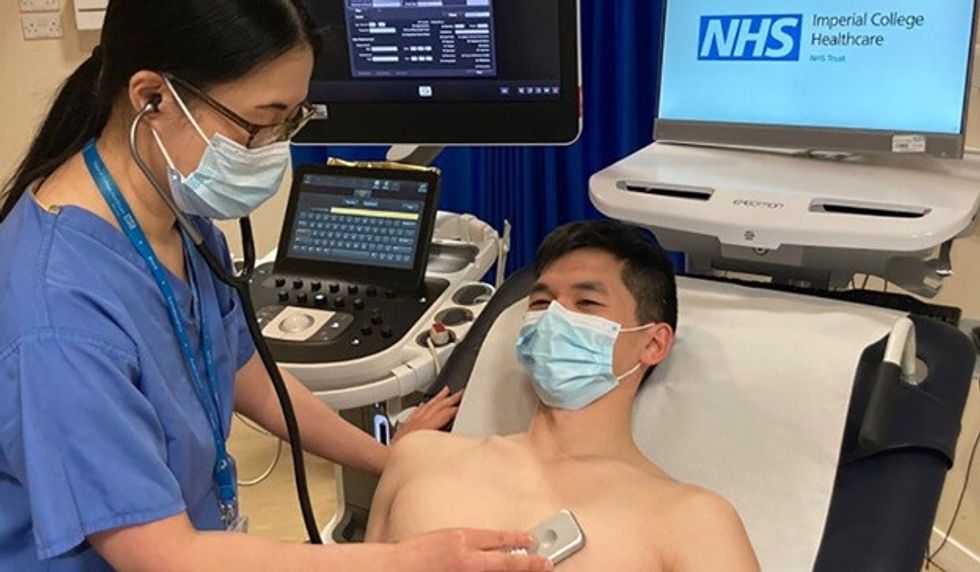'A real game-changer!' AI stethoscopes can detect 3 heart conditions in just seconds
The new gadget can detect heart failure, heart valve disease and abnormal heart rhythms, researchers say
Don't Miss
Most Read
An updated version of the classic stethoscope could assist doctors looking to detect heart conditions within mere seconds, a recent study has revealed.
Using artificial intelligence (AI), the advanced technology can pick up nuances in heartbeats and blood flow that the human ear cannot detect with a standard stethoscope.
Additionally, the AI system could record electrical levels in the heart simultaneously.
First invented in 1816, the tool “upgraded for the 21st century” could be a “real game-changer” for medicine, researchers have declared.

The AI gadget has increased chances of detecting heart problems
|IMPERIAL COLLEGE HEALTHCARE
It is hoped that, with such advanced tools, patients with heart failure, heart valve disease and abnormal heart rhythms, can be diagnosed and treated more quickly.
The study, led by Imperial College London and Imperial College Healthcare NHS, trialled the innovative device across more than 200 GP surgeries dotted about the nation’s capital.
Those with specific symptoms of heart failure, such as breathlessness, fatigue or swelling of the lower legs or feet were assessed.
Around 12,725 patients from 96 surgeries were involved in the London-wide study and were compared to patients from more than 100 surgeries where the gadget was not used.
LATEST DEVELOPMENTS
The patients who had the AI stethoscope were 2.33 times more likely to be diagnosed with heart failure within the year.
While it had almost double the chance of diagnosing heart failure, the gadget was more than three times more likely to detect atrial fibrillation.
Instead of a bell-shaped chest piece to listen to low-frequency sounds of the body, the updated AI version has a small rectangular device, placed on an individual’s chest.
The device then takes an ECG (electrocardiogram) by measuring electrical activity in the heart while also recording the sound of blood flow. Then a smartphone receives the test’s findings.

The stethoscope was first invested in 1816
|GETTY
Clinical director at the British Heart Foundation (BHF) and consultant cardiologist Dr Sonya Babu-Narayan said: “This is an elegant example of how the humble stethoscope, invented more than 200 years ago, can be upgraded for the 21st century.
“We need innovations like these, providing early detection of heart failure, because so often this condition is only diagnosed at an advanced stage when patients attend hospital as an emergency.
“Given an earlier diagnosis, people can access the treatment they need to help them live well for longer.”
Scientific director for innovation at the NIHR professor Mike Lewis added: “This tool could be a real game-changer for patients, bringing innovation directly into the hands of GPs.
“The AI stethoscope gives local clinicians the ability to spot problems earlier, diagnose patients in the community, and address some of the big killers in society.”











